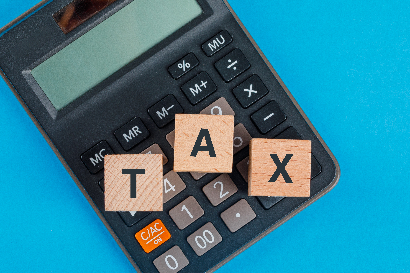
Section 80TTA of the Income Tax Act: A Guide to Claiming Deductions on Savings Account Interest
In India, owning a savings account is almost universal, but many people are unaware that the interest earned from these accounts is taxable. This income is classified as “Income from Other Sources” when filing income tax returns.
Fortunately, provisions like Section 80TTA under the old tax regime allow taxpayers to claim deductions on savings account interest income, offering some relief. Here’s a comprehensive guide to understanding and claiming deductions under Section 80TTA for the assessment year 2023-24.
What Is Section 80TTA?
Section 80TTA, introduced in the 2013 Finance Bill, provides tax benefits on savings account interest income. Taxpayers can claim a deduction of up to ₹10,000 per year on interest earned from their savings accounts. This measure was implemented to encourage citizens to save.
Who Can Claim Deductions Under Section 80TTA?
The Section 80TTA deduction is available to:
- Individuals
- Hindu Undivided Families (HUFs)
- Non-Resident Indians (NRIs) – However, NRIs can claim this deduction only for interest earned on Non-Resident Ordinary (NRO) accounts. Interest from Non-Resident External (NRE) accounts is entirely tax-exempt.
Note: Senior citizens (individuals aged 60 years and above) cannot claim this deduction. Instead, they can benefit from Section 80TTB, which offers higher deductions on interest income.
Types of Interest Income Eligible for Deduction Under Section 80TTA
Taxpayers can claim deductions on interest earned from:
- Savings accounts held with banks
- Savings accounts with post offices
- Savings accounts with cooperative societies offering banking services
Types of Interest Income Not Eligible for Section 80TTA Deduction
Section 80TTA deductions do not apply to:
- Interest from fixed deposits (FDs)
- Interest from recurring deposits (RDs)
- Interest from term deposits
- Deposits with Non-Banking Financial Companies (NBFCs)
- Interest earned on corporate debentures or bonds
Maximum Deduction Limit Under Section 80TTA
The maximum deduction limit under Section 80TTA is ₹10,000 per financial year. If the total interest income from all eligible savings accounts exceeds ₹10,000, the deduction is capped at ₹10,000.
How to Claim the Section 80TTA Deduction
Follow these steps to claim deductions under Section 80TTA:
- Calculate the total interest earned from all eligible savings accounts during the financial year.
- Ensure the interest amount does not exceed ₹10,000.
- Declare the interest income under the “Income from Other Sources” category while filing your income tax return.
- Claim the deduction under Section 80TTA in the applicable section of the old tax regime.
Final Thoughts
Section 80TTA is a valuable tool for taxpayers, offering financial relief on modest savings account interest income while promoting the habit of saving. By understanding the eligibility criteria and limits, individuals can make informed decisions to optimize their tax planning and reduce their taxable income effectively.








